In this article, I will discuss the best Dropbox alternative for self-hosting.
Undoubtedly, there are plenty of hosting solutions, from storage to self-hosted collaboration, where users can find value and comfort without compromising on privacy or trust in login counterparts like the mentioned cloud providers.
From individuals to businesses looking to store sensitive data in their repositories, these solutions are great portable sources of security and ease of use.
Key Point & Best Dropbox Alternative Self-Hosted List
| Service | Key Points |
|---|---|
| Nextcloud | Open-source, self-hosted; strong privacy control; extensive customization; integrates with productivity tools |
| ownCloud | Self-hosted; highly secure; collaborative features; supports various plugins; suitable for teams |
| Syncthing | Decentralized, peer-to-peer syncing; open-source; no central server needed; strong privacy focus |
| Google Drive | Cloud-based, high availability; easy collaboration; integrates with Google Workspace; generous free tier |
| pCloud | Cloud storage with offline access; zero-knowledge encryption; lifetime plan available; media streaming |
| Tresorit | Focus on security and privacy; end-to-end encryption; GDPR compliant; ideal for businesses |
| Seafile | Open-source, on-premises option available; fast syncing; user permissions management; good for enterprises |
| Hoodik | Secure storage with file sharing; user-friendly; privacy-focused; ideal for personal and small business use |
| Box | Strong business focus; collaborative tools; integrates with multiple apps; secure data governance features |
| IDrive | Multi-device backup; strong versioning options; affordable; file sync and share with end-to-end encryption |
10 Best Dropbox Alternative Self-Hosted
1. Nextcloud
Nextcloud is a self-hosted open-source platform that is very good for users who are concerned about the control of their data and their privacy.
It also provides a wide range of features through plugins such as file sharing, tasks, and video conferencing tools.
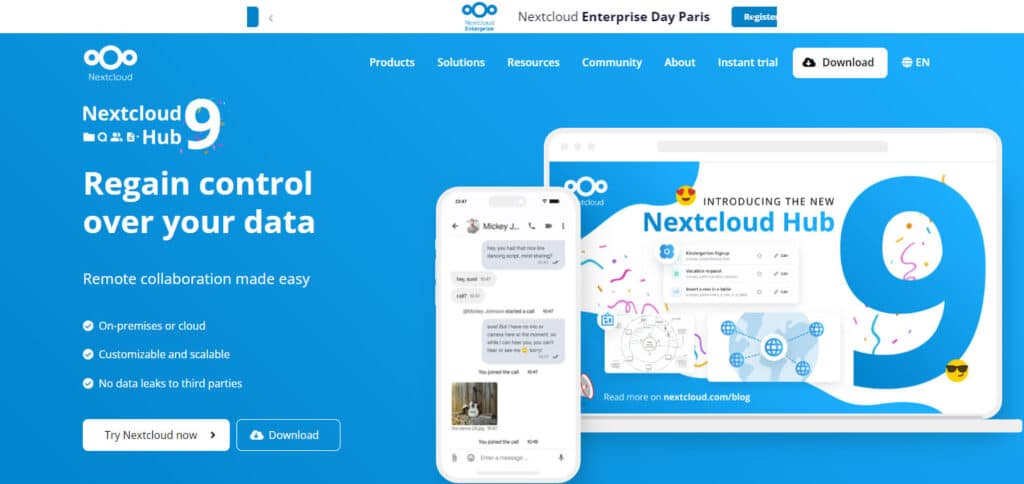
Such high security and compatibility with office programs make it an effective solution for individual and corporate needs.
Thanks to the self-hosting capabilities of Nextcloud, the data is always in the client’s hands, guaranteeing sophisticated access management and encryption capabilities.
Nextcloud Features
2.ownCloud
ownCloud is a powerful self-hosted solution aimed at secure data storage, primarily in collaborative settings.
It enables users to add functionalities in the form of plugins, supports a variety of file types and facilitates data exchange securely.
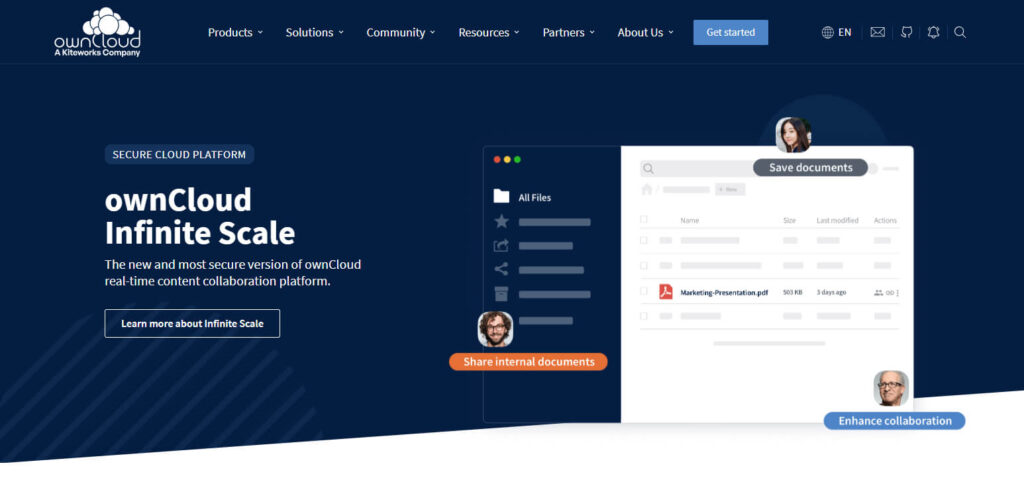
Best for teams, ownCloud has tight data governance and file versioning and integrates with major office applications.
It is built to meet data protection requirements compliance, with a high degree of adaptability to satisfy specific or general organizational security requirements.
ownCloud Features
3. Syncthing
Syncthing is a system that allows users to synchronize files in a decentralized architecture without compromising privacy.
It is designed to operate without the use of a central server, meaning it is possible to transfer files from one device to another without an intermediary.
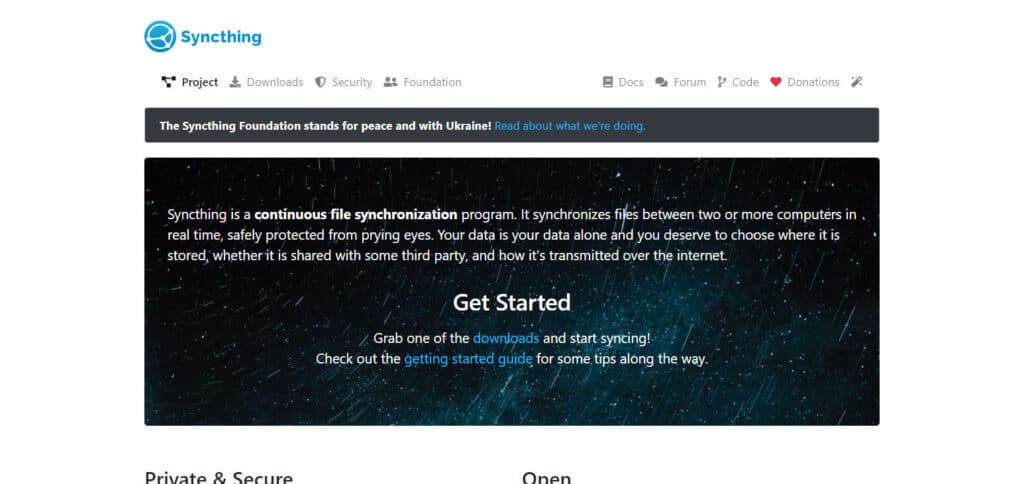
Being open-source, it is highly appropriate for individuals who care about data and its security, as it can be modified easily.
Given its server-less architecture, Syncthing is easy to set up and operate, which in turn makes it very appealing to private individuals and small groups that require secure file sharing.
Syncthing Features
4. Google Drive
Google Drive offers a user cloud storage as well as Google Workspace online applications WeDocs, Sheets and Slides.
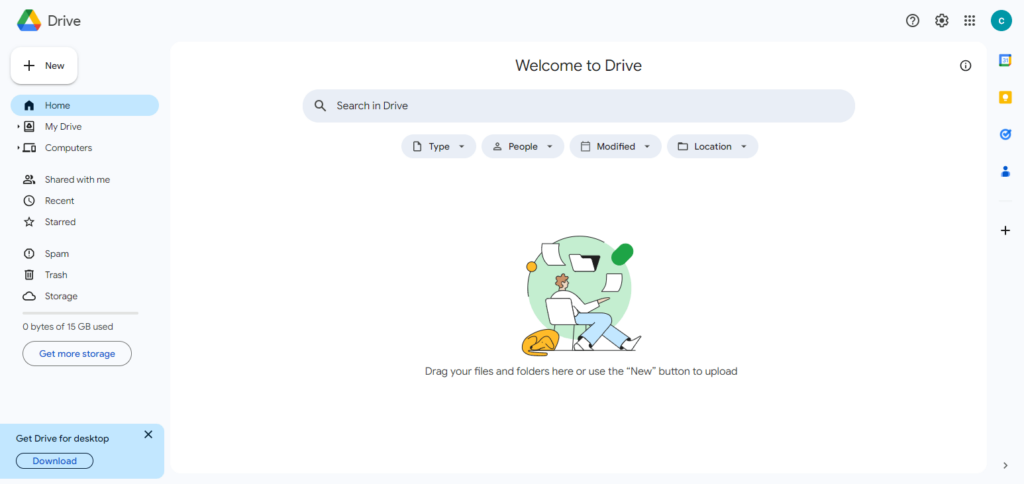
Though it is not self-hosted, it is a good alternative to Dropbox because of its reasonable free plan and easy collaboration options.
Google Drive allows group work by providing instant editing and file sharing. On the downside, though, those who rely on self-hosted privacy should be aware that their information is stored in Google servers, thereby limiting their control over the security of their information.
Google Drive Features
5.pCloud
The pCloud approach is distinctive since it employs zero-knowledge protection and an exclusive option for offline access while remaining reliable.
Great for clients who prefer a dependable Dropbox substitute with features such as media streaming and file versioning.
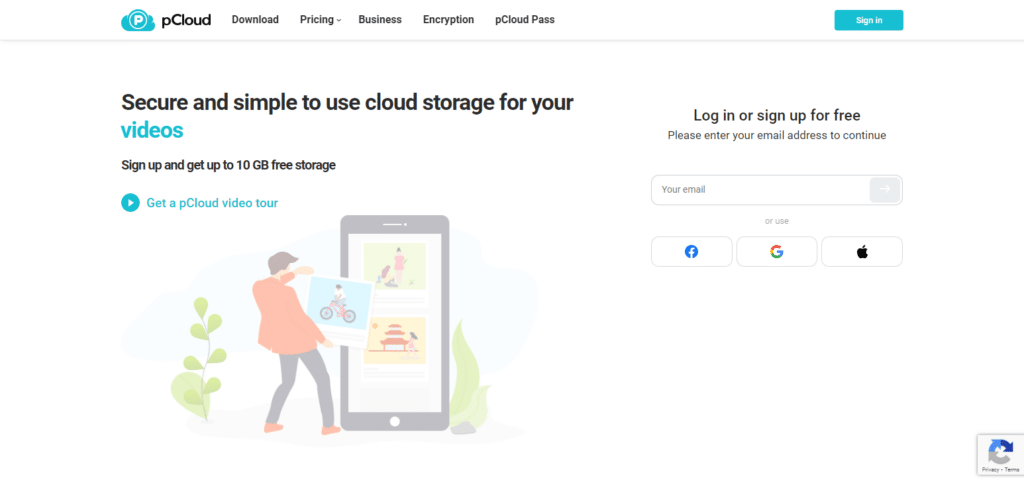
Furthermore, there is a pCloud lifetime option, which is suitable for users who have long-term requirements.
Although it is not self-hosting, it is a good alternative that puts a greater emphasis on privacy, as it has data storage regions in the EU or the US for added options.
pCloud Features
6. Tresorit
Tresorit is a file storage application that focuses on end-to-end encryption and adherence to the GDPR, allowing businesses to utilize them stress-free.
Highly regarded for the passing of stringent privacy policies, Tresorit is favoured by businesses needing to protect highly sensitive information.
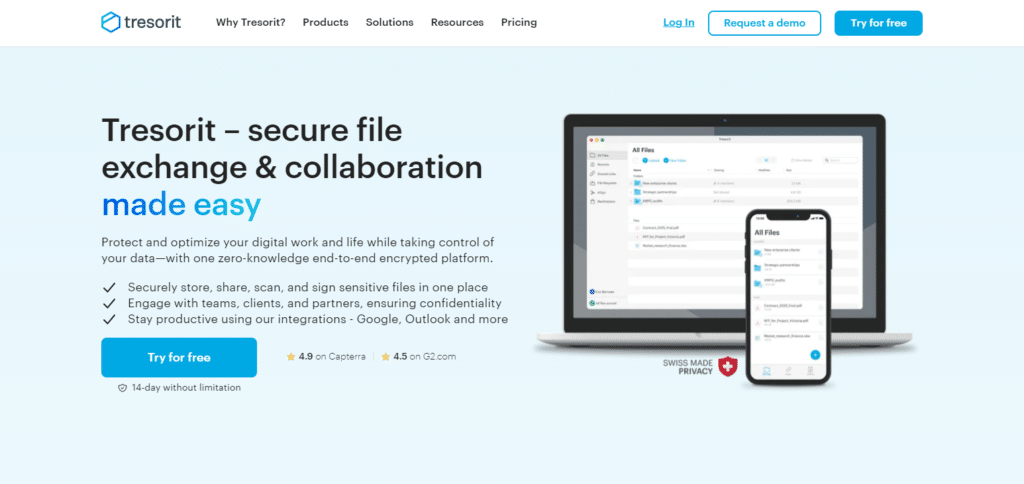
So, while it is not self-hosted, it does guarantee the security of the data and compliance with international data protection laws.
Tresorit provides such collaboration and access management features that can be appealing to those wanting powerful encryption without needing to manage their data off-site.
Tresorit Features
7. Seafile
Seafile is an open-source file-syncing service that can be implemented on the cloud as well as on the pay site.
Expansion options are endless, with round-the-clock customer support, AFAS ensures fast synchronization ans sophisticated security.
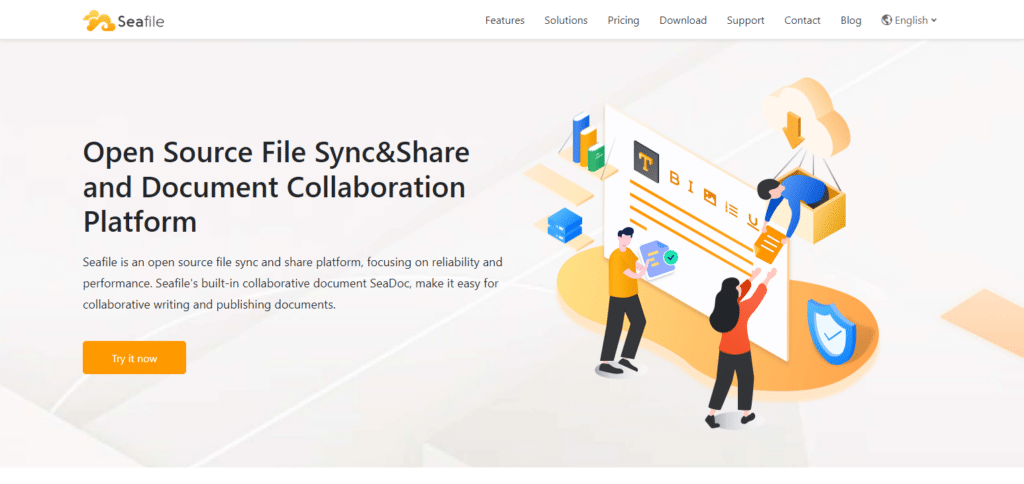
Seafile environments are suitable for companies that are looking for safe, self-hosted file management as they offer extensive features, including document encryption and personalization.
Seafile is a secure, intuitive and robust document storage system that contains collaborative tools, supports key management, and provides effective governance of data access, all ideal for firms with strict resource control requirements.
Seafile Features
8. Hoodik
Hoodik has everything you need in file storage. It is safe, easy to share files, and user-friendly.
You can use Hoodik for personal or for your small company, as it is simple yet safe.
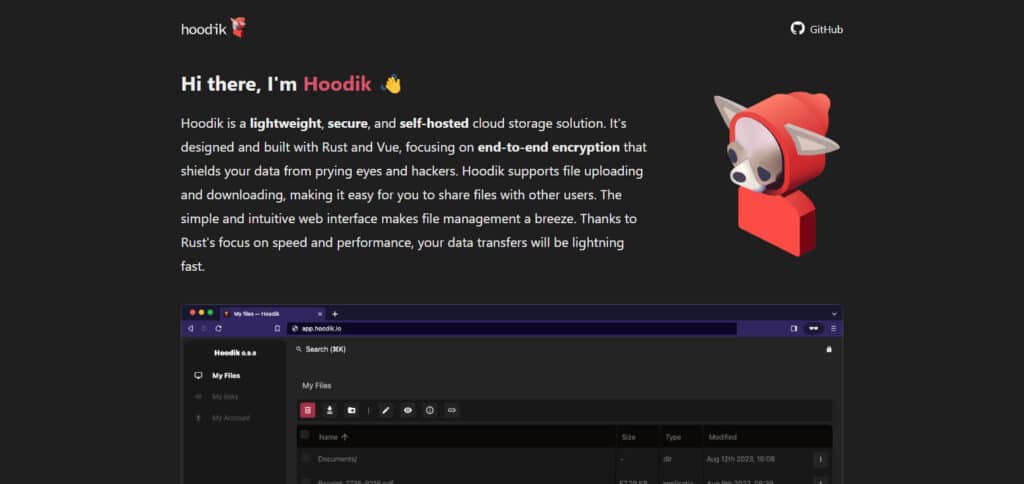
Many people use it not as a fully self-hosted service, as for them, protecting their data is much more important.
It has simple basic features; therefore, it is a good alternative for people who require privacy and doesn’t involve difficult setups.
Hoodik Features
9. Box
Box emphasizes high-level collaboration while also prioritizing effective data security.
Although not a self-hosted solution, Box provides integration to several third-party applications and contains advanced access control features, which can serve as a great alternative to Dropbox for corporations.
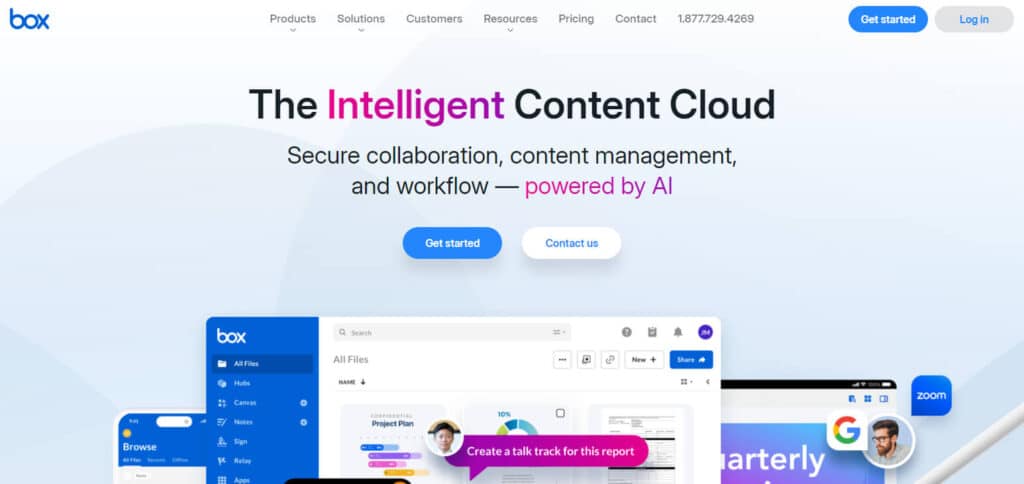
It also allows a secure exchange of information, facilitates work together in real-time and has features targeting strict rules on compliance to be met.
The box is well-suited for organizations that are looking to share and manage data with many users in a large organization.
Box Features
10.IDrive
iDrive is a multi-platform backup solution for storage and file sharing with strong encryption.
It comes with encryption, versioning and flexible backup options, which makes it a good option for users who require robust data protection.

Because of its reasonable rates and wide range of security options, IDrive is a good option for both individuals and companies.
For those who are focused on protecting their data rather than working collaboratively in real time, the backup options are much easier. So it is a great alternative for Dropbox.
IDrive Features
How To Choose Best Dropbox Alternative Self-Hosted
Privacy and Security: There are additional solutions that contain end-to-end encryption, data privacy rules, and compliance systems. It offers platforms such as Nextcloud, ownCloud and Tresorit, which strive to ensure that security is strong and allow users to hold the data, which is a necessity when dealing with sensitive data knowingly.
Customization and Extensibility: It is possible to work with a custom solution that has a little more power, provided an open source such as Nextcloud or Seafile is suitable for you. This is because Many of these platforms allow adding plugins for extra features such as Video conferencing, task management or advanced permissions, and that is great for users who want these functionalities of the systems alone.
Ease of Setup and Maintenance: Solutions that are self-hosted differ greatly in ease of setup. If you don’t want complexity in installation, then look for those solutions with a clean UI and installation guidance. For example, the setup is relatively simple on Syncthing, with few server management requirements. At the same time, there are good features on such platforms as Nextcloud, but they will require more technical utilization.
Scalability: In the case of use by a team or business, scaling up is essential. Look for platforms that are designed for multi-user, multi-role, multi-storage. Seafile and ownCloud are particularly fit for scaling, making them useful for companies that have expanding teams and data requirements.
Collaboration Features: If your bucket of work rotates around files, consider the approach where sharing and editing would be easy. Nextcloud and ownCloud have collaborative applications that work with office packages and allow creating, commenting, and sharing files simultaneously.
Compatibility with Other Services: It is important to configure with the platform where you prefer. Nextcloud is one such solution which can work with many add-ins and applications, thus making data exchange between tools effortless.
Cost: Consider the cost, especially if you plan to add more server resources. While self-hosting solutions appear to have lower monthly subscription rates, they often still require hardware or cloud resources. Be sure to include the costs of long-term server maintenance and costs in your analysis.
Conclusion
In other words, choosing the best self-hosted Dropbox alternative is determined by one’s requirements regarding privacy, the possibility for customization, scalability, and the interface.
For those who have control over their data foremost, there are robust configurable solutions such as Nextcloud and ownCloud. In contrast, Syncthing is a more straightforward solution for those who want to ensure their privacy.
Other enterprises looking for more expansive and collaborative building blocks should consider Seafile.
Evaluating such solutions on criteria such as security, collaboration features, and costs will allow one to reap the benefits of self-hosted storage without descending into the depths where all autonomy is surrendered.


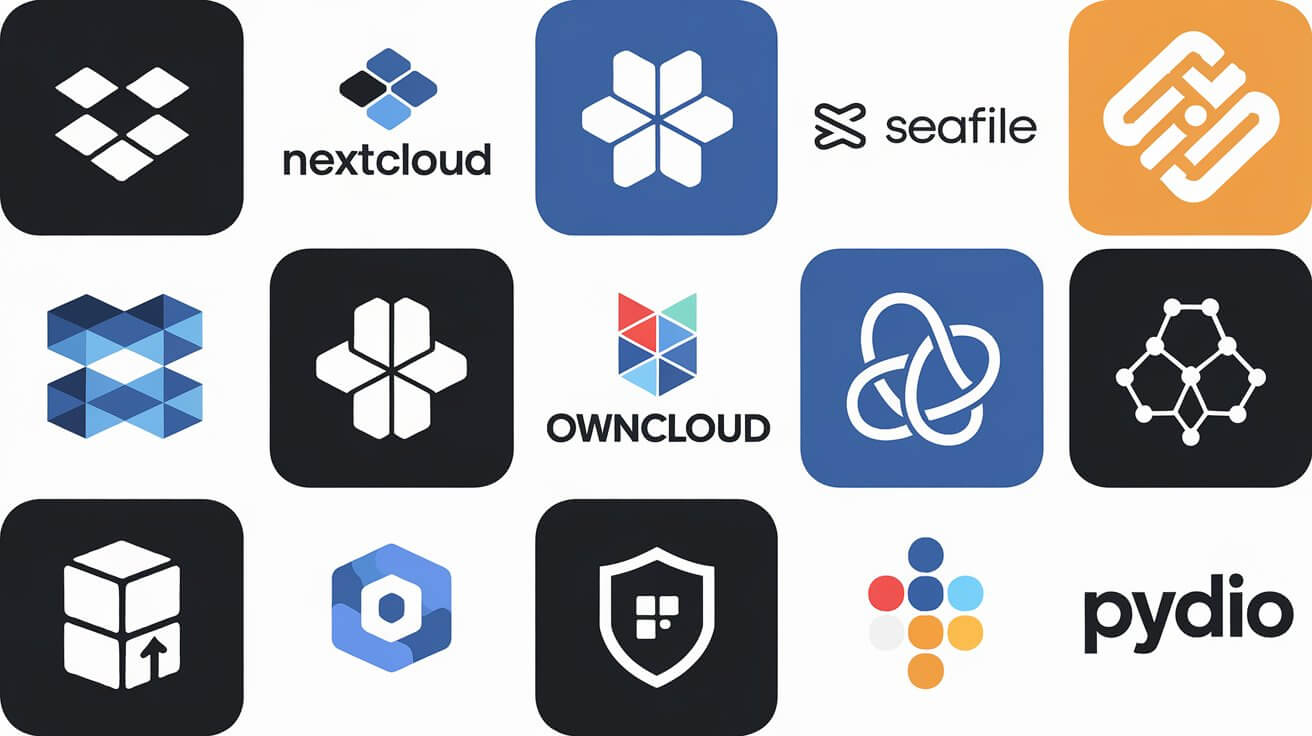




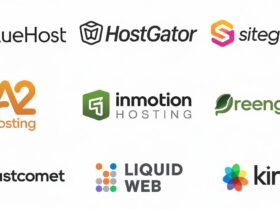
Leave a Reply